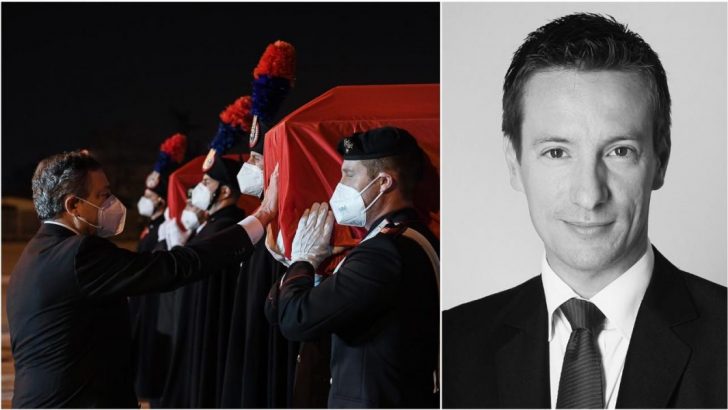Vatican official insists religious services are ‘essential’
For believers, the ability to practice their faith and receive spiritual guidance are “the highest of essential services”, and pandemic practices over the past year have shown they are not automatically super-spreader events, the Vatican foreign minister said.
Speaking February 23 during the high-level segment of the UN Human Rights Council session in Geneva, Archbishop Paul Gallagher said, “There are numerous examples of how the freedom of worship can be guaranteed while taking all the necessary precautions to protect reasonably public safety.”
Pope Francis, the Vatican and most bishops around the world acknowledged and accepted most of the measures imposed by local and national governments to ensure public health and slow the spread of the pandemic, he said.
But some measures have gone so far as to “impinge on the free exercise of numerous human rights. Any limitations on the exercise of human rights for the protection of public health must stem from a situation of strict necessity,” he said.
“Such limitations must be proportional to the situation, applied in a non-discriminatory fashion and used only when no other means are available.”
Vatican supports waiving patents for vaccines
The Vatican threw its support behind an effort by India, South Africa and a host of developing nations to loosen international patent protections and speed up sub-licensing agreements for the production of Covid-19 vaccines, pharmaceuticals and personal protective equipment.
“Despite the billions of taxpayer dollars invested in R&D (research and development), and announcements that Covid-19 vaccines should be considered a public good, no government has openly made such a public commitment,” Archbishop Ivan Jurkovic said February 23.
The archbishop, who is the Vatican representative to UN agencies in Geneva, spoke at a meeting of the World Trade Organization’s Council for Trade-Related Aspects of Intellectual Property Rights.
“Most countries of the world are experiencing delays in vaccine rollout programs,” the archbishop said. “On the other hand, in many countries, a large number of manufacturing facilities, with proven capacity to produce safe and effective vaccines, are unable to utilise those capacities” because of the patents and other intellectual-property protections. The international TRIPS (Trade-Related Aspects of Intellectual Property Rights) agreement, he said, has proven to be too cumbersome to facilitate sub-licensing.
Pope mourns deaths of Italian ambassador, officer in Congo
Pope Francis joined the people of Italy in mourning the murders of the country’s ambassador to Congo and an Italian officer in his security detail, both young men the Pope described as “servants of peace and law”.
Ambassador Luca Attanasio, 43, and 30-year-old officer Vittorio Iacovacci of the Italian military police died after being shot in an ambush in North Kivu February 22.
Their driver, Mustapha Milambo, also was shot and killed as they were traveling in a UN convoy. Mr Attanasio, who had been ambassador to Congo since 2017, left behind his wife and three young children.
Mr Iacovacci was engaged to be married in the summer. In a message to Italian President Sergio Mattarella February 23, Pope Francis expressed his “heartfelt condolences to their families, the diplomatic service and the Carabinieri for the loss of these servants of peace and law”.
The Pope described Mr Attanasio as “a person of outstanding human and Christian qualities, always generous in forging fraternal and cordial relationships” with an aim of helping bring peace back to Congo.


 Prime Minister Mario Draghi honored the dead
Photo: PAP / EPA / ALESSANDRO DI MEO
Prime Minister Mario Draghi honored the dead
Photo: PAP / EPA / ALESSANDRO DI MEO 